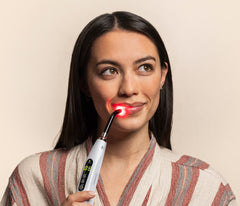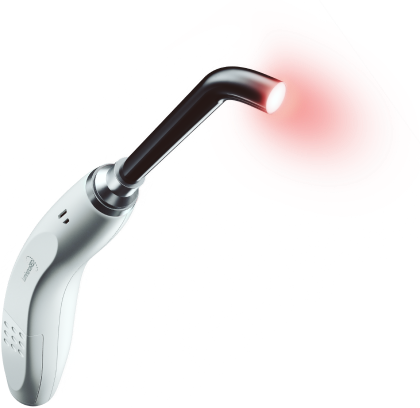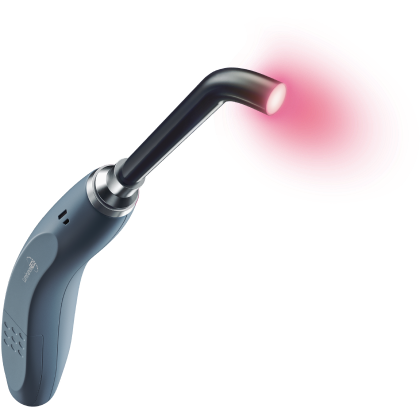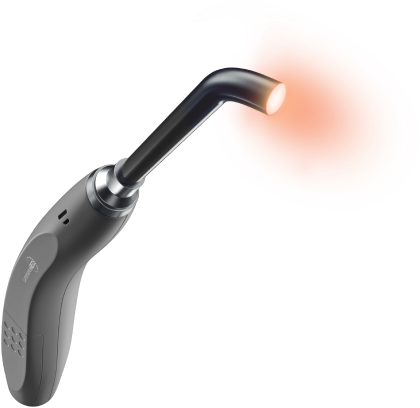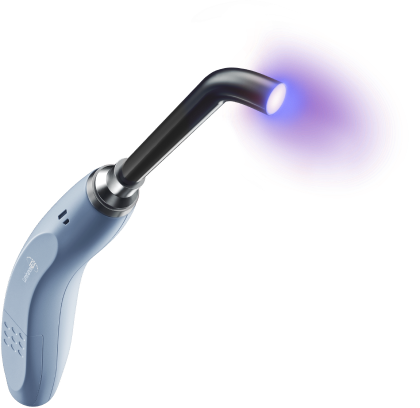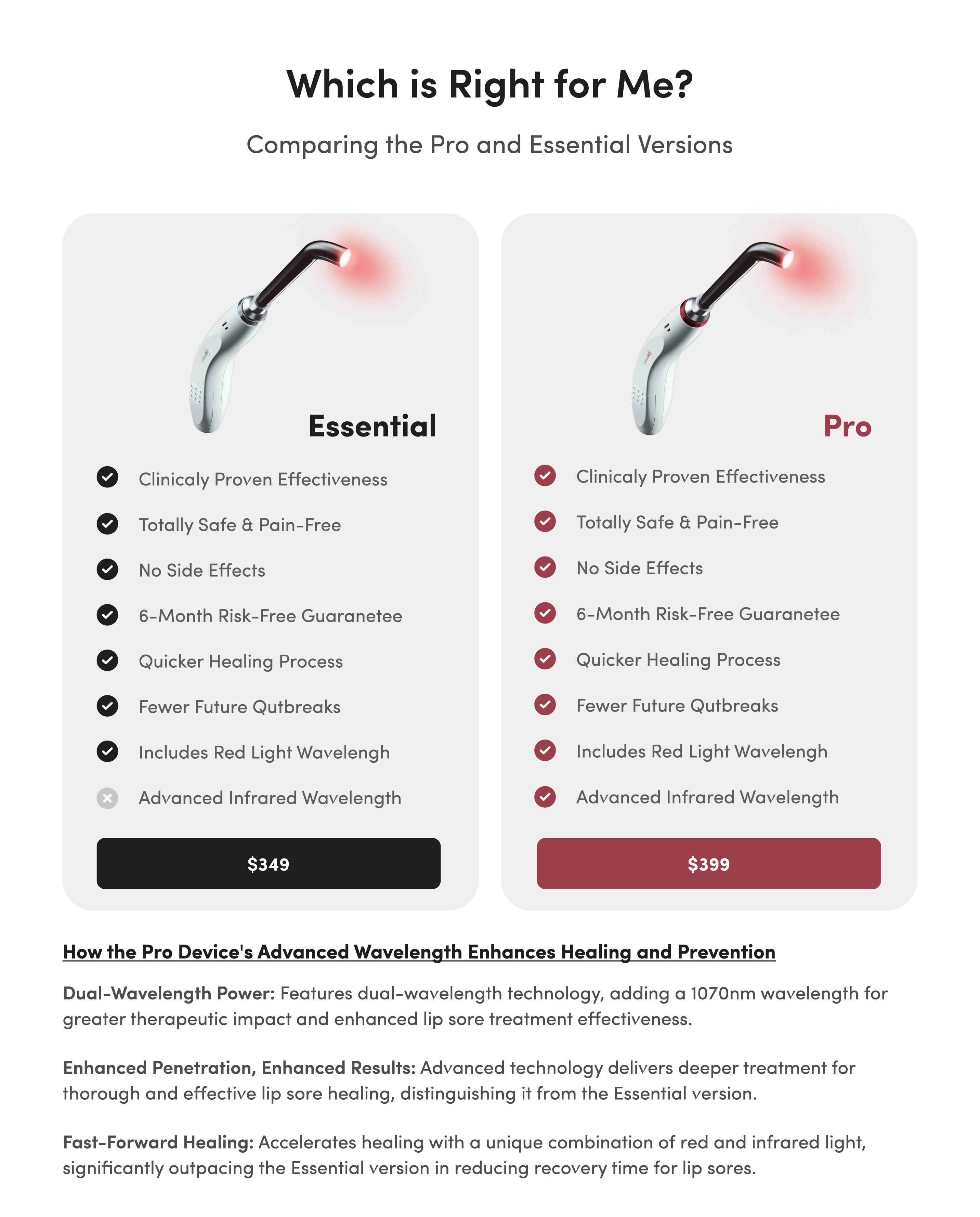A Guide to Managing Constant Herpes Outbreaks
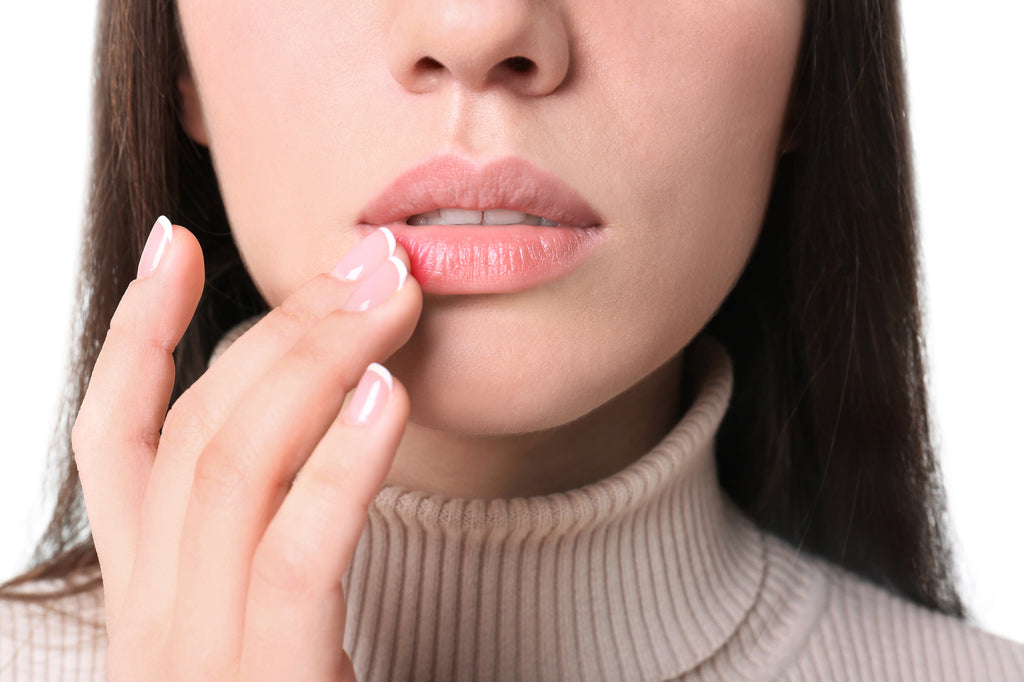
Nobody wants to have herpes, but this pesky virus is a fact of life. According to the World Health Organization, more than 66% of the world’s population is living with HSV-1. If you are among the majority of people with a herpes virus infection, it’s important to understand that this condition doesn’t have to define your quality of life!
Even recurrent herpes outbreaks can be effectively managed and minimized. All it takes is careful preventative measures and strategic outbreak treatments to regain control of your wellbeing.
What Happens During Your Initial Herpes Outbreak?
Your first herpes outbreak, known as the initial or primary infection, is usually the most severe. Some lucky people remain asymptomatic, but it’s common to experience intense flu-like symptoms within seven to 14 days of becoming infected with the herpes virus.
Symptoms of an initial outbreak often include:
- -Fever and chills
- -Aches and pains in the body
- -Headache
- -Fatigue
- -Swollen glands
- -Difficult or painful urination
- -A tingling sensation in the affected areas
You can expect your initial herpes outbreak to last two to four weeks before it finally clears up. The good news, at least, is that future outbreaks are usually shorter and less painful than the first.
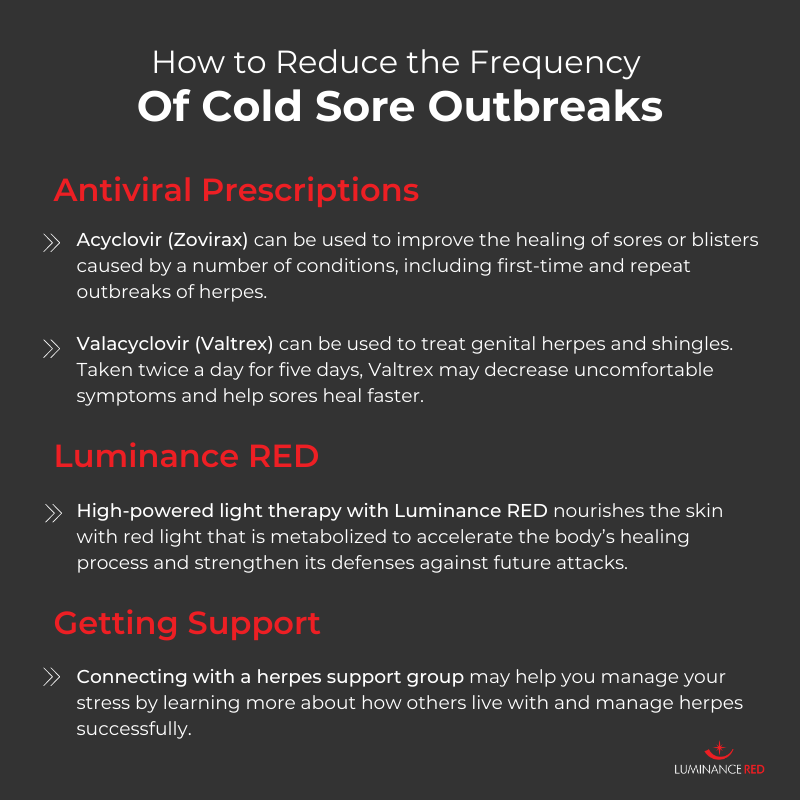
What Are the Stages of a Cold Sore?
The herpes simplex virus type 1 (HSV-1) emerges in five distinct phases that cause painful and unpleasant cold sore outbreaks.
These five stages transition through tingling, blistering, weeping, crusting, and healing:
- An itching and burning feeling develops underneath the skin. This sensation indicates that a cold sore is forming
- Fluid-filled cold sore blisters develop on or around the mouth
- The blisters burst or “weep” and release their fluids
- The core sores dry up into yellow and brown crust
- Cold sore scabs heal; the skin around the mouth looks healthy once again
Though there’s no permanent cure for cold sores, it’s possible to expedite the recovery process and leave your skin looking smooth and attractive once again.
Rarely, leaving cold sores untreated, can lead to complications, especially in people with weak immune systems. (Reference)
What’s the Typical Frequency of Cold Sores?
There’s no algorithm to predict the exact frequency of cold sore outbreaks. Many different factors influence the frequency and duration of herpes occurrences.
More than anything, cold sores develop in response to certain triggers. The herpes virus lies dormant and inactive within the nerve cells of your skin until one or more of these triggers disrupts its slumber:
- -Stress
- -Fatigue
- -Hormonal changes
- -Another viral infection
- -Injury to the skin
- -Poor diet
- -Unusual exposure to sunlight and wind
- -Weak immune system
- -Chemotherapy
Once a cold sore develops, it may last three to seven days before the sores scab over and heal.
What’s the Typical Frequency of Genital Herpes?
The herpes simplex virus type 2, better known as genital herpes or HSV-2, is a sexually transmitted infection. Despite having no cure, a number of techniques are proven to reduce the frequency and duration of each genital herpes outbreak.
You may recognize a genital herpes outbreak by the appearance of blisters and lesions. Most people experience their first outbreak two to 12 days after initial exposure to the virus. After the blisters break, it may take up to four weeks for herpes ulcers to heal.
After the first outbreak, recurring outbreaks are common but don’t last nearly as long. Sores tend to heal within three to seven days in recurring outbreaks, and the number of outbreak periods may even decrease over time.
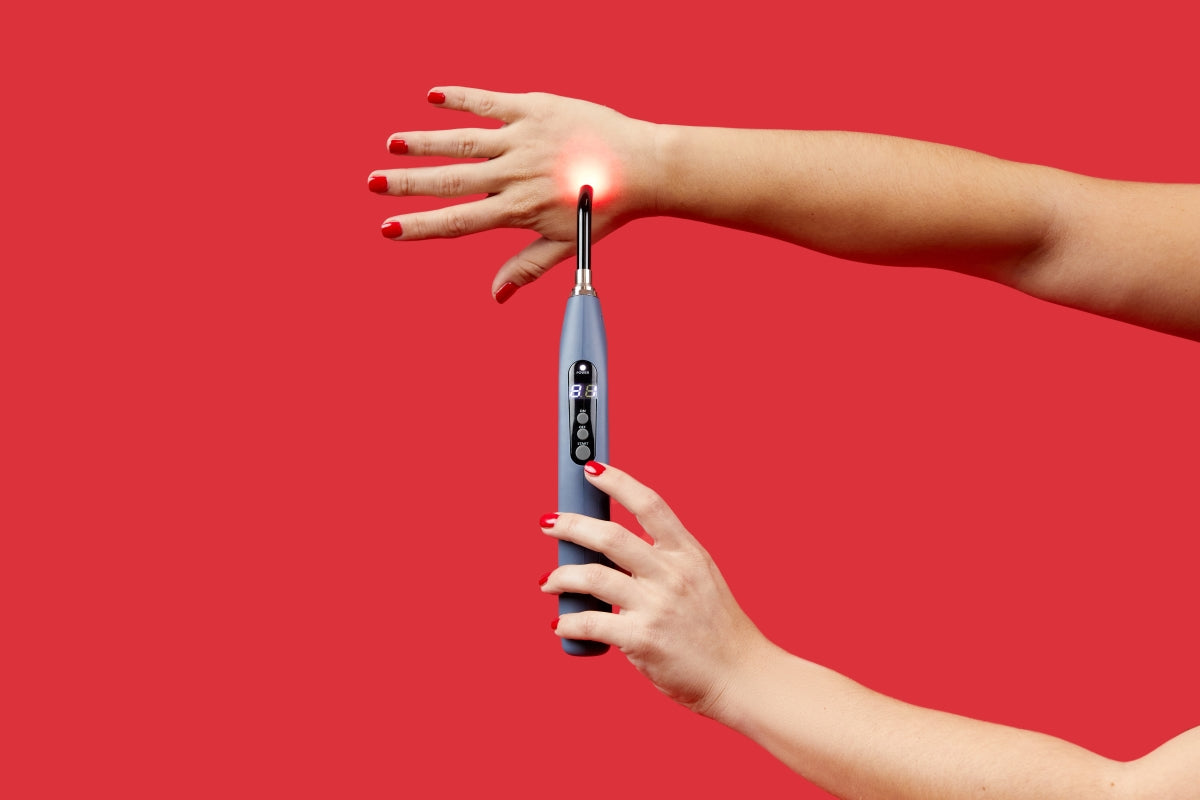
How to Reduce the Frequency of Cold Sore Outbreaks
You can implement preventative measures to stop constant herpes outbreaks before they even begin! Using these tips will help you keep the herpes virus dormant and quiet for as long as possible.
Antiviral Prescriptions
A few antiviral prescriptions are available to control the herpes virus and prevent the activation of new outbreaks. However, these medications need to be started promptly, within 48 hours from the onset of symptoms (Reference). Two of the most common antivirals include acyclovir and valacyclovir.
Acyclovir (Zovirax) is a prescription medication used to improve the healing of sores or blisters caused by a number of conditions, including first-time and repeat outbreaks of herpes. It works by slowing or stopping the spread of the herpes virus within the body, but it cannot cure herpes.
Valacyclovir (Valtrex) is another antiviral prescription drug used to treat genital herpes and shingles. Taken twice a day for five days, Valtrex may decrease uncomfortable symptoms and help sores heal faster. In some cases, this antiviral can also prevent new sores from forming.
Luminance RED
High-powered light therapy with the Luminance RED nourishes the skin with red light that is metabolized to accelerate the body’s healing process and strengthen its defenses against future attacks. The Luminance RED device is easy to use to reduce the effects of cold sore outbreaks. It is designed to be held about one centimeter from the area being treated for a 60 second session. It should be applied at least once a day, but up to three times a day, for maximum efficiency.
Thanks to the precise design of the Luminance RED, every treatment provides the exact, medically optimized wavelength and irradiance of light necessary to maximize treatment efficiency and prevent cold sore outbreaks. Regular use of the Luminance RED can not only shorten the healing time of active outbreaks, but it can prevent future outbreaks altogether.
Consider Getting Support
In addition to medication and red light therapy, you can also battle constant herpes outbreaks with the help of a support group. The herpes virus creates stress, discomfort, and anxiety for many people. Connecting with a herpes support group may help you manage your stress by learning more about how others live with and manage herpes successfully.
Herpes Opportunity is a positive resource to help people with herpes establish a new way of thinking, speaking, and being. The site’s free community forum connects people with herpes from all areas of the world to share their stories, provide advice, and offer support.







